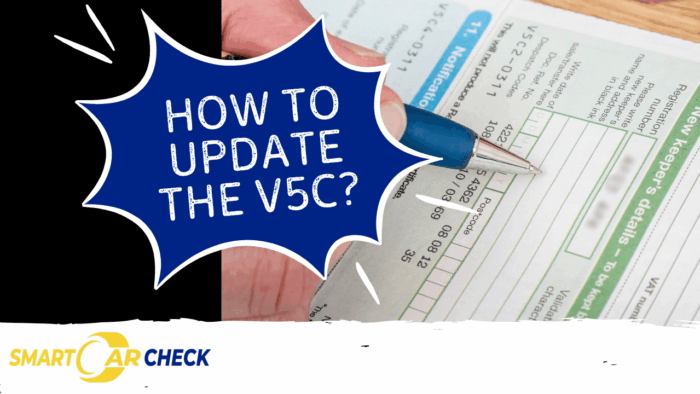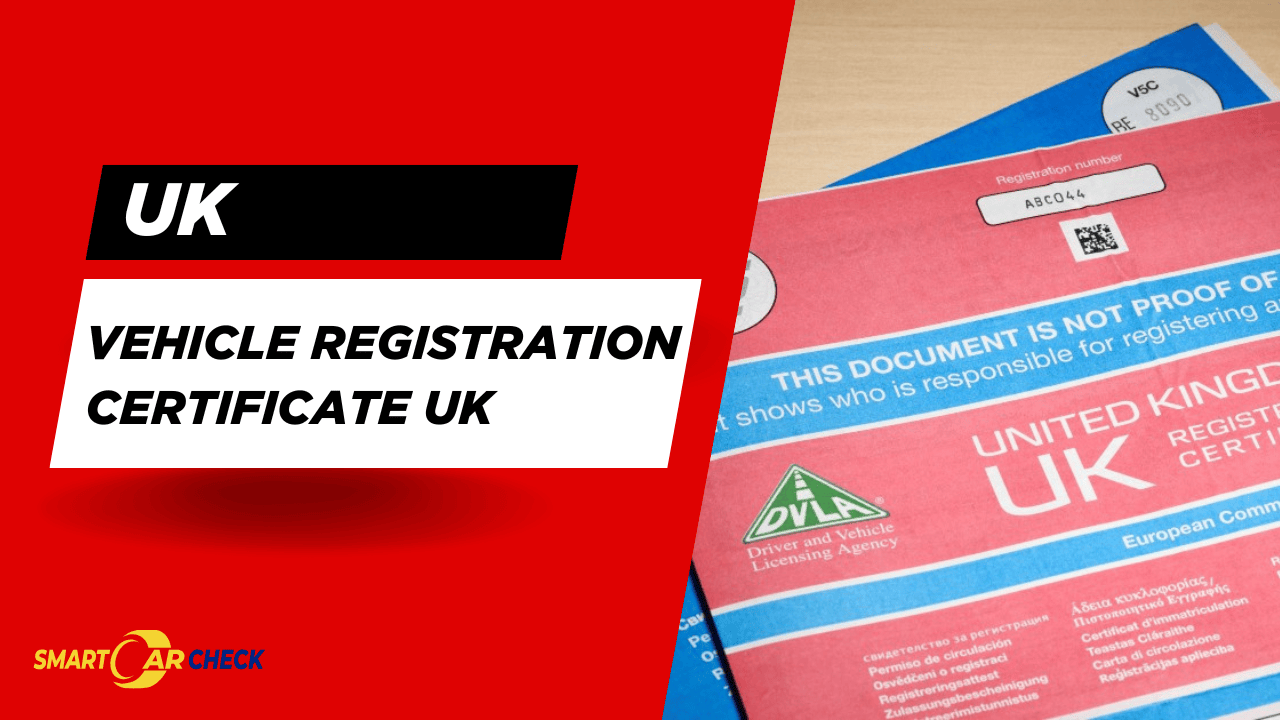Many drivers keep their vehicle documents tucked away and only think about them when it’s time to sell the car. But the vehicle registration certificate–the V5C–is more than you might think.
Still, many people delay updating their vehicle registration certificate after changes like a new address or vehicle modifications, which can lead to problems. To stay on the right side of the law and avoid fines or delays, it’s important to know when should you update your vehicle registration certificate and how to do it correctly.
Why Is the V5C Important?
The vehicle registration (V5C) is a legal document issued by the DVLA. It shows who is responsible for the vehicle, including the keeper’s name and address. It’s not proof of ownership, but it links the person to any legal responsibility, such as taxes, MOTs, and fines.
Keeping your V5C details updated is important because it helps ensure you receive important reminders and official notices. If your details are wrong, you could miss tax renewal letters, speeding tickets, or even refund cheques from the DVLA.
It also helps protect against fraud. If someone else gets hold of your V5C with your old information, they might try to sell your car without permission.
When Should You Update the V5C?
Updating the V5C gains you many benefits. Here are the main situations when you should update your V5C.
- You move house: If you change your address—even if it’s temporary—you need to update the document.
- You change your name: After getting married or legally changing your name.
- When you sell or buy a car, a new V5C must be issued when the car’s keeper changes.
- If you modify your vehicle, you must record: any major changes, such as colour, fuel type, or engine modifications.
- You scrap your car: If your car is written off or scrapped, the DVLA needs to know through your V5C.
- You export your vehicle: Export vehicle even if it’s temporary, such as moving abroad with your car, you should notify the DVLA.
If you fail to update these cases, you could face fines up to £1,000 or problems with your insurance, especially if the wrong details are included. For the official statement, you may visit the DVLA website.
Why is it Important to update the Vehicle Registration Certificate?
Keeping your Vehicle Registration Certificate up to date is important for both legal and practical reasons. The document has the written records about the vehicle and its registered keeper. If you move house, change your name or address, or sell your car, failing to update the V5C can lead to serious issues.
You may miss important information from the DVLA, such as tax reminders or penalty charges, or worse, you could be held responsible for offences committed by the new owner. An outdated certificate can also delay processes like insurance claims or vehicle transfers. To stay compliant and avoid unnecessary stress, it’s best to update your registration details as soon as any changes occur.
READ ALSO: What is Dual Clutch Transmission?
How to Update the V5C?

Updating the V5V does not take a long time. Here’s a simple guide to help you update the V5C easily.
Identify the Reason to Update
Before updating the V5C, you need to reconsider the reasons for updating the certificate, such as changes to name, address, or vehicle details.
Fill in the Right Sections of the V5C
Pay attention to the section that needs to be updated. Here are a few guidelines to help you.
- If you’re updating your address or name, please fill in Section 6 or Section 3 (if you have the new-style log books).
- If you’re updating the vehicle details (such as colour or engine size), use Section 7 or Section 1 for new-style log books.
- Use the new keeper slip (green part) if the car has a new keeper.
You can also apply online to make some changes. For address changes, go to the UK government website.
Send it to the DVLA or use the Online Portal
If you want to send the request offline, send it to the DVLA’s address: Post the V5C to the DVLA’s office. If using the online form, follow the prompts and submit your application digitally.
Pay the Fee (If required)
Most updates are free, especially if you change the name or address. However, if you lose the V5C, you will need to pay a replacement fee of £25.
Wait for Confirmation
The DVLA will send you the latest version of the V5C document to your registered address. The process typically takes up to 6 months, but applying online may result in a much faster turnaround.
Common Questions and Misconceptions
Here are the common questions you may have. We’ve answered them and simplified it for you.
Here are the common questions you may have. We’ve answered them and simplified it for you.
What happens if I forgot to update my V5C?
You might not get reminders for car tax or MOTs. You could also get fined if the car is involved in a legal issue or sold fraudulently.
How long does it take to receive my new V5C?
The V5C usually arrives by post within 4-6 weeks. Online applications are sometimes quicker; you can receive your new V5C within a week.
Can I sell my car without updating my V5C?
You can sell your car, but the new keeper must get a valid and updated V5C. It is your responsibility to notify the DVLA when the sale occurs.
Is it illegal to have the wrong address on the V5C?
Yes, the fines can amount to up to £1,000, especially if you missed the DVLA notifications or got caught in an enforcement situation.
READ ALSO: Can Someone Find My Address?
Get Vehicle Information Before Buying
Before buying a used car in the UK, check the vehicle details first. Ensure they match what the seller claims. If something doesn’t match, the car could be stolen or have other hidden problems. The Vehicle Registration Certificate (V5C) helps confirm these details. It is also needed when applying for a tax refund or private number plates.
If you want to sell your car, having the correct information on the V5C helps build trust. Buyers feel more confident when the papers match the car.
Most importantly, check the car’s history before you buy. You can get a number plate check with the registration number or, alternatively, use our VIN check tool to see full records of vehicles and avoid costly mistakes.
Final Thought
Your V5C is more than just a piece of paper; it legally connects you and your vehicle. Whether you are changing your name, address, or selling your car, it is your responsibility to ensure that everything is accurate and up to date.
So, when should you update your vehicle registration certificate?
Any time there’s a change in your details or the car itself. It’s simple, often free, and can be done online or by post.
Check your V5C and ensure it accurately reflects your current vehicle registration details. Keeping your vehicle history check records up to date ensures you are safe, compliant, and stress-free.
Frequently Asked Questions
When should you update your car?
To get the most for your trade-in, aim to sell when its value surpasses its depreciation. Typically, recent models with popular styling and a history of good maintenance hold their value best.
What documents provide proof of car ownership in the UK?
The main document that proves car ownership in the UK is the V5C registration certificate (also known as the logbook). Additional proof of ownership can include the purchase receipt or invoice from the seller, a finance agreement, if the car is under a finance plan, and a bill of sale or contract of sale.
Can you register your car at a different address in the UK?
Yes you can. Remember to update your vehicle registration document (V5C) if you change your name or address; it’s usually free. Failing to inform the UK’s DVLA can incur a £1,000 penalty. Changing both name and address requires a postal application.


